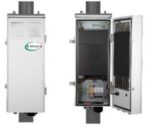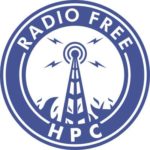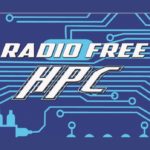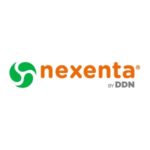Today Supermicro announced first-to-market IP65 enclosure-based servers for 5G RAN, AI inferencing, and other edge-focused applications based on Intel Xeon D and 2nd Gen Intel Xeon processors and broad configuration options. “Based on Supermicro’s Building Block Solutions, these 5G systems can be configured with a variety of processor and memory combinations so that customers can tailor their solutions to push data center remote management to the Edge. Supermicro has extensive experience with popular virtualization and container software such as Kubernetes, to efficiently facilitate these interactions, and has multiple servers certified NGC-Ready for Edge to extend AI capabilities across public and private networks.”
2020 Predictions from Radio Free HPC
In this podcast, the Radio Free HPC team lays out their tech predictions for 2020. “Henry predicts that we’ll see a RISC-V based supercomputer on the TOP500 list by the end of 2020 – gutsy call on that. This is a double down on a bet that Dan and Henry have, so he’s reinforcing his position. Dan also sees 2020 as the “Year of the FPGA.”
GIGABYTE Brings AI and Cloud Solutions to CES 2020
GIGABYTE is showcasing AI, Cloud, and Smart Applications this week at CES 2020 in Las Vegas. “GIGABYTE is renowned for its craftsmanship and dedication to innovating new technologies that are current with the time and helping humanity leap forward for more than 30 years. GIGABYTE’s accomplishments in motherboards and graphics cards have set the standard for the industry to follow, and the quality and performance of its products have been the excellence that competitors look up to. GIGABYTE has leveraged the experience and know-how to establish a trusted reputation in data center expertise, and is responsible in supplying the hardware and support to some of the biggest companies involved in HPC and cloud & web hosting services, enabling their successes in the respective fields.”
Podcast: Quantum Applications are Always Hybrid
In this podcast, the Radio Free HPC team looks at inherently hybrid nature of quantum computing applications. “If you’re always going to have to mix classical code with quantum code then you need an environment that is built for that workflow, and thus we see a lot of attention given to that in the QIS (Quantum Information Science) area. This is reminiscent of OpenGL for graphics accelerators and OpenCL/CUDA for compute accelerators.”
DDN Moves Closer to the Edge with Nexenta Acquisition
Today DDN announced its intent to acquire Nexenta, the market leader in Software Defined Storage for 5G and Internet of Things (IoT). “Our clients benefit from the flexibility and performance of Nexenta’s robust SDS solutions and platform-agnostic strategy, which provide great differentiation for the HPC, AI, and high-performance data analytics (HPDA) verticals we serve. With escalating demands from our clients for ultra-scalable compute and data storage platforms, we look forward to the exciting developments which will result from this new relationship.”
Podcast: Seeing the Black Hole with Big Data
In this podcast, the Radio Free HPC team discusses how the news of the cool visualization of an actual black hole leads to interesting issues in HPC land. “The real point: the daunting 1.75 PB of raw data from each telescope meant a lot of physical drives that had to be flown to the data center. Henry leads a discussion about the race between bandwidth and data size.”
Radio Free HPC does their 2018 Technology Predictions
In this podcast, the Radio Free HPC team reviews their 2017 technology predictions from last year. After that, we do our 2018 Predictions including a bombshell on who Rich thinks will acquire Cray by the end of the year.
BSC Collaborates with OpenFog Consortium
“To reinforce and continue with our pioneering work on fog computing that started in 2008, we pursue synergies between leading technology companies and academic and scientific community,” said Mario Nemirovsky, Network Processors Manager at BSC. “By collaborating with the OpenFog Consortium, we will be able to contribute to the consolidation of an IoT platform for the interoperability for consumers, business, industry and research. We are looking forward to a constructive and fruitful collaborations with all OpenFog members.”











